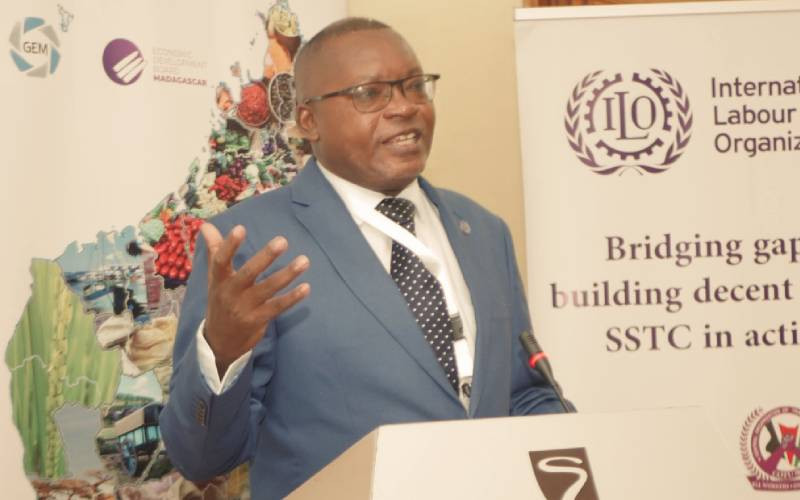Women, not just in Kenya, but the world over, have come a long way. There is no denying the fact that in many cases, women today are giving as much as they get in nearly all spheres. In fact, vices that were predominantly male by nature are now genderless! Women have become predators, in the same way they have traditionally been hapless prey. Millions of women have entered the job market, taking up positions that were the preserve of men.
But that is just half the story. As far as women empowerment goes, what you see is not always what you get. In many countries, women still have a long way to go before they can claim to be at par with men. Actually, the women equality crusade has hit a plateau. Consequently, an emerging school of thought is of the view that the current model of women empowerment in the fight for gender equality has backfired, threatening to claw back gains made painstakingly over the years.
Let us take the Kenyan case study. How have women-led organisations, public and private, performed exemplarily better than those managed by men? Have they recorded higher profits, or even achieved benchmark levels of corporate governance? In the political sphere, have areas represented by women experienced more development? This new thinking declares that claims usually peddled that women leadership is essentially different, or superior, from that of men, are not factual. It advocates a new paradigm shift in the way society has positioned women in the social, economic and political strata. Accordingly, it states that pitting women against men in an apparent antagonistic competition for opportunities and resources has simply created counterproductive toxic feminism.
When a woman stands up to a man in an aggressive manner, it changes the nature of the relationship from one based on partnership, to one of might. Think about it this way. In nearly all governments and corporations around the world, men still form the largest number of decision makers. Now, if these men are not convinced that women can make equal partners in their boards, no change will be achieved.
If a man in a position of power has a strained relationship with his spouse, it would be foolhardy to expect him to fight passionately or honestly for women empowerment. Forget the constitutional dictates.
May be the question we should ask ourselves is, what do women need, rather than, what do women want? The difference being that “need” is a more fundamental and sustainable approach, while “want” points to gratification of desires that may not necessarily add value to the status of women. Although this view would be regarded as sexist or misogynistic, a woman’s best, and most effective weapon, is domiciled in her God-given femininity; even vulnerability. This includes the virtues of compassion, patience, love, kindness, persuasion and nurturing. A woman who perfects the use of soft skills, as opposed to hostility, can move a mountain.
Look at some of the most effective leaders in the world today, starting with First Lady Margaret Kenyatta. Without being brash, Kenyatta has saved and transformed the lives of mothers through her Beyond Zero Campaign. Former Foreign Affairs Cabinet Secretary Amina Mohamed traversed the globe with diplomatic ease and poise. Also analyse the demeanour of the Kenya’s pioneering senior-most military woman service-person, Maj Gen Fatuma Ahmed.
The demeanour of German Chancellor Angela Merkel and Britain’s Prime Minister Theresa May can attest to this fact. It is simply a natural phenomenon that the true and sustainable strength of a woman lies in her gentility. Indeed, there is a growing breed of women, the so called slay queens, who have decided that they are not ready to trade in their inborn femininity for testosterone-driven pursuits. For women and men to work together effectively, it takes mutual respect in recognition of certain undeniable limits and inalienable rights that nature has placed on each other’s roles. Let us not overstep or undermine either gender’s abilities.
- The writer is a communication specialist. [email protected]
 The Standard Group Plc is a
multi-media organization with investments in media platforms spanning newspaper
print operations, television, radio broadcasting, digital and online services. The
Standard Group is recognized as a leading multi-media house in Kenya with a key
influence in matters of national and international interest.
The Standard Group Plc is a
multi-media organization with investments in media platforms spanning newspaper
print operations, television, radio broadcasting, digital and online services. The
Standard Group is recognized as a leading multi-media house in Kenya with a key
influence in matters of national and international interest.
 The Standard Group Plc is a
multi-media organization with investments in media platforms spanning newspaper
print operations, television, radio broadcasting, digital and online services. The
Standard Group is recognized as a leading multi-media house in Kenya with a key
influence in matters of national and international interest.
The Standard Group Plc is a
multi-media organization with investments in media platforms spanning newspaper
print operations, television, radio broadcasting, digital and online services. The
Standard Group is recognized as a leading multi-media house in Kenya with a key
influence in matters of national and international interest.







